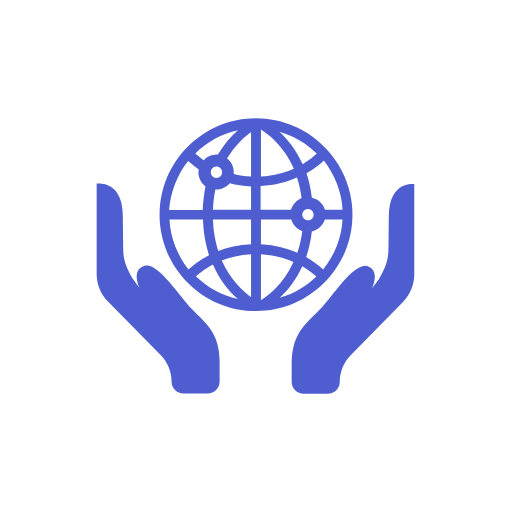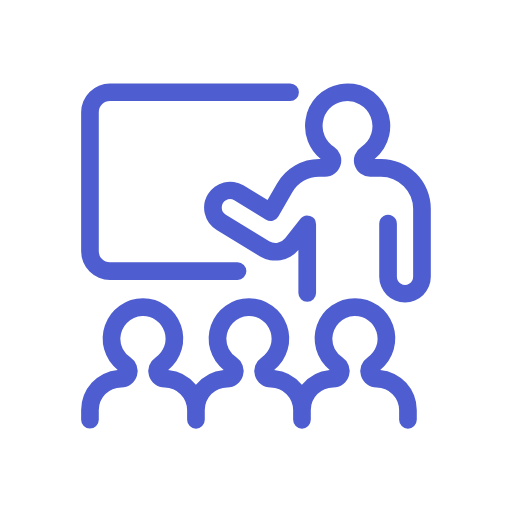WHy Train Government Anti-Trafficking Officials & Stakeholders?
"new understanding and new skills provide the tools to produce new results."
– Stephen Warnath, CEO & President
Our professional development process
Our educational programs are carefully designed to fit the specific professional needs of participants. We tailor each training to provide a uniquely effective means of improving responsiveness to human trafficking. Our process of customizing the content of trainings produce performance-based skill development and results that no generic one-size-fits-all training can match.


Our educational programs are carefully designed to fit the specific professional needs of participants. We tailor each training to provide a uniquely effective means of improving responsiveness to human trafficking. Our process of customizing the content of trainings produce performance-based skill development and results that no generic one-size-fits-all training can match.

We offer multi-day trainings and short workshops based on the educational objectives determined by each government’s goals and needs. Depending on the responsibilities and experience of training participants, trainings range from beginning to advanced skillsets and subjects. Our educational approach emphasizes victim-centered analysis and practices. Our experts lead our peer-to-peer skill-based inter-active trainings utilizing their experience working on human trafficking cases and deep understanding of best practices in law, policy, and practice. Graduates of our trainings are equipped with new knowledge, skills, tools, and capacity to improve their performance in combatting human trafficking.
Professional development to achieve improved performance involves sustained attention to


Professional development to achieve improved performance involves sustained attention to
topics for government officials & criminal justice actors
human trafficking 101
- Phenomenon of Human Trafficking
- The Legal Definition of Human Trafficking
- International Laws & Instruments
laws
- Understanding the Purpose of Key Components of Anti-Trafficking Laws
- Drafting and Strengthening Anti-Trafficking Laws, National Plans of Action, and National Strategic Plans
investigations
- Simulated Investigation Exercises
- Human Trafficking Crime Identification
- Keys to Investigation & Prosecution of Human Trafficking
prosecutions
- Creating specialized Anti-TIP investigative/prosecution units
- Preparing the Victim for Trial
- Victim Interview Simulations
Working with victims
- The Victim-Centered Approach
- Improving Identification of Victims of Trafficking
- Understanding the Effects of Trauma and Fear on Victims
judges
- Introduction to Human Trafficking for Judges
- Judicial Dialogues on Legal Issues Raised in Human Trafficking
Government-provided victim services
- Best Practices for Government Provision of Shelter & Assistance to victims of TIP
- Recognizing and Addressing the Unique Needs of Children in Provision of Services
Data & Research
- Developing Effective Data Systems for Governments and NGOs
- The Law & Ethics of Victims’ Data Collection & Protection
- The Important Role of a National Rapporteur
immigration
- Identifying Human Trafficking Cases at Points of Entry
- Opportunities & Limitations of Anti-TIP Work by Immigration Officials at Borders
- Identifying Human Trafficking Cases within Large Migration/Refugee Flows
referral mechanisms
- Developing National & Transnational Referral Mechanisms
- Strengthening Collaborations between Law Enforcement & NGO Service Providers
international cooperation
- Mutual Legal Assistance
- Extraterritorial Jurisdiction
- Extradition of Human Traffickers
- Bi- & Multi-lateral Government Responses to TIP
Examples of other topics
- Investigating & Prosecuting Financial Crimes Associated with Human Trafficking
- Civil Actions & Remedies
topics for victim service providers
Best practices in protection & assistance
- Victim Protection Strategies for Service Providers
- Provision of Mental Health Services
Prevention
- Prevention Strategies for NGOs
- Addressing Root Causes and Contributing Factors
- Community Outreach
- Building Public – Private Partnerships
referral mechanisms
- Developing National & Transnational Referral Mechanisms
- Strengthening Collaborations between Law Enforcement & NGO Service Providers
data & Research
- Developing TIP Data Collection Systems for NGOs
- Ethical Issues of Research Involving Victims of Human Trafficking
communication
- Strategies for NGOs
- Community Outreach & Awareness
- Social Media
examples of other topics
- Aiding Victim Reintegration into Society via Enterprise & Training
- Authority to Work & Freedom of Movement for Victims of Trafficking
Contact Us
If you are a government official or service provider involved in the anti-trafficking work of your country and are interested in learning more about the training and technical assistance that The Warnath Group can provide, please contact us.
